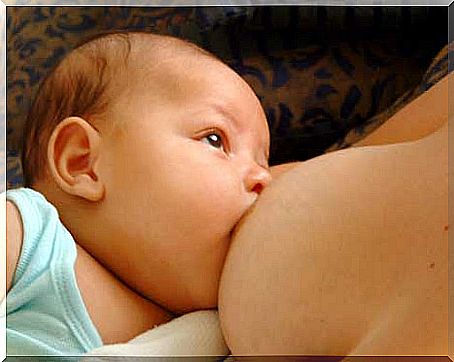How To Get Your Baby To Sleep All Night

Moms almost always have dark circles under their eyes. That’s just the way it is. But during the first days of our newborn babies’ lives, the dark circles get even worse. Dad has them too. What we all want most is to know how to get your baby to sleep for eight hours so that you yourself can also get some rest.
The truth is that you have to be patient, especially the first three months.
What can we hope for?
Do not give up, it will get better with time. Here we will explain what happens to your baby’s sleep pattern and how to get your baby to sleep all night.
What can you do to get your baby to sleep longer? As you read the question, you may be hoping to find a magic formula, but as you already know, there is no such thing.
However, there are some techniques you can apply. Try and see which ones work best for you. Something that is important is to get into a routine.
Babies know how to sleep, but they have a different sleep routine than adults. As explained in the book Sleep Without Tears by Rosa Jove , studies have shown that fetal movements from the third trimester of a pregnancy follow a pattern, which is then followed by inactivity. These patterns are very similar to the sleep pattern that a newborn has.
From birth, the baby will gradually begin to sleep less and less and in a more regular pattern. They begin to sleep long during the night and for shorter periods after eating.
One of the best pieces of advice on how to get your baby to sleep is to help him maintain his sleep pattern by having a daily routine. In this way, you can make the sleeping hours during the day easier and make sure that they go to bed at about the same time in the evening. There will be times when you will be able to rest.

The most sensible thing to do during a baby’s first three months is to pay attention to the signs it gives you. For example, if it falls asleep while breastfeeding or when you hold it in your arms, place it in a place where it can sleep. It can be in the cradle, in the stroller or in a basket.
Some experts say that during the first period of infancy, babies can easily go from being sleepy to being alert and awake. So, if they are awake, encourage the conscious state and play with the baby. In this way, you help them to distinguish between being awake and sleeping.
A tip for how to get your baby to sleep is to try to get it to be able to differentiate between night and day. You can do that with interaction. For example, you can play with your baby during the day, talk to him or play music. At night, however, you can talk in a subdued voice and turn off the lights. It will work.

Benefits of a routine
Jove explains that from birth to six months, babies’ sleep has only two phases. From six months and upwards, they can instead have up to five phases, just like adults. This explains the rapid transition from sleeping to being awake.
The fact that their sleep has only two phases means that they wake up often. As soon as these two phases are over, they wake up to eat, to strengthen the bond with their parents and to avoid dangers. Psychologists believe that babies do not know that there are no dangers and therefore they need the security of feeling that their parents are close.
Richard Ferber, author of Solve Your Child’s Sleep Problems , highlights the fact that by the time babies are three months old, they will have already developed a fairly predictable pattern for the day. But it is necessary to give them consistent routines.
At that stage, you should try to get into a daily routine and keep it as strict as possible. In this way, it is most likely that your child will continue to develop good sleeping routines, says Richard.
He explains that the baby’s sleeping pattern is more likely to become irregular if the time for food, play, swimming and other activities is constantly changing.
Jove points out that no one has ever proven that routines have a negative effect (this presupposes that they are not excessive or inflexible, which can increase the risk of certain disturbances).
Remember that routines should be flexible, yet predictable. Do not stress over a schedule. It does not matter if something is postponed by half an hour, or if you sometimes skip part of the routine.
Jove and other authors also highlight the importance of breastfeeding to help babies sleep better. It depends on the composition of the breast milk and because the contact between baby and mother and the sucking have a calming effect.
Breastfeeding benefits not only the baby, but also the mother. The hormones released during breastfeeding help the mother fall asleep more easily, says Jove, who also advocates sleeping with her baby.









